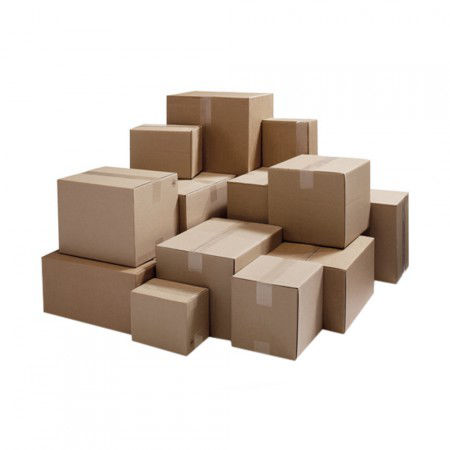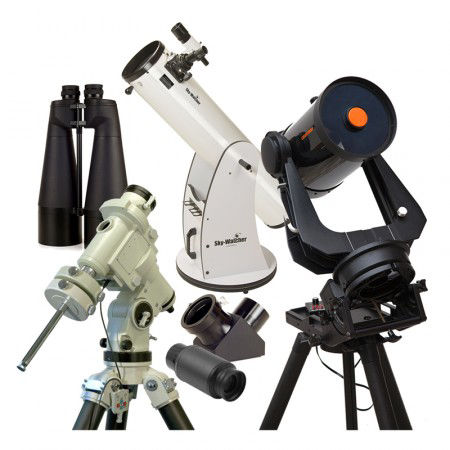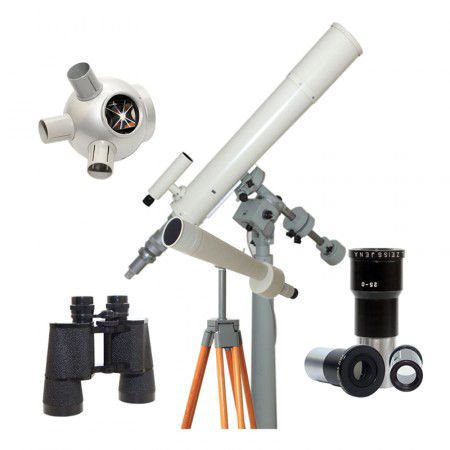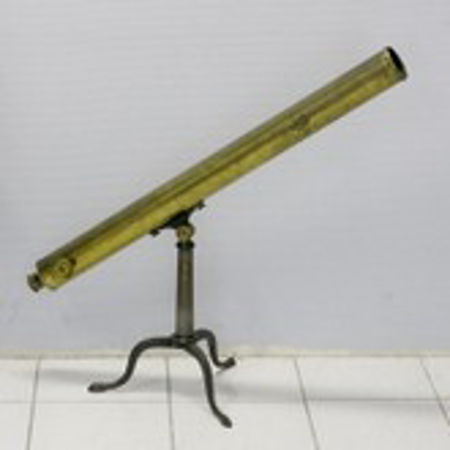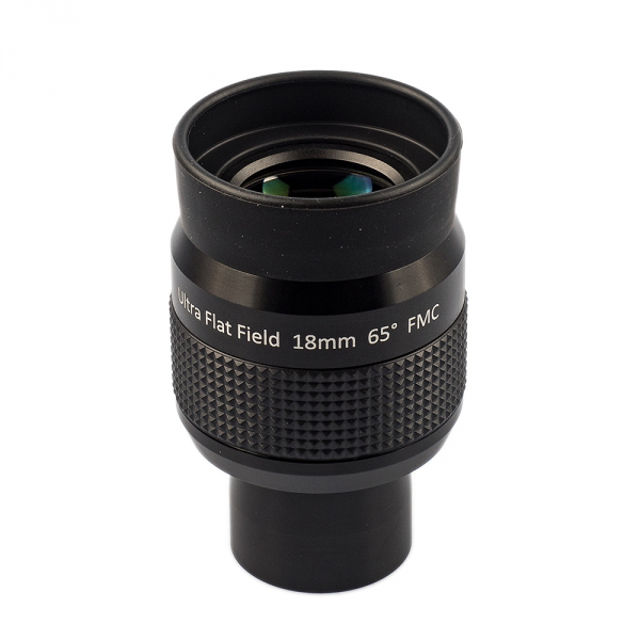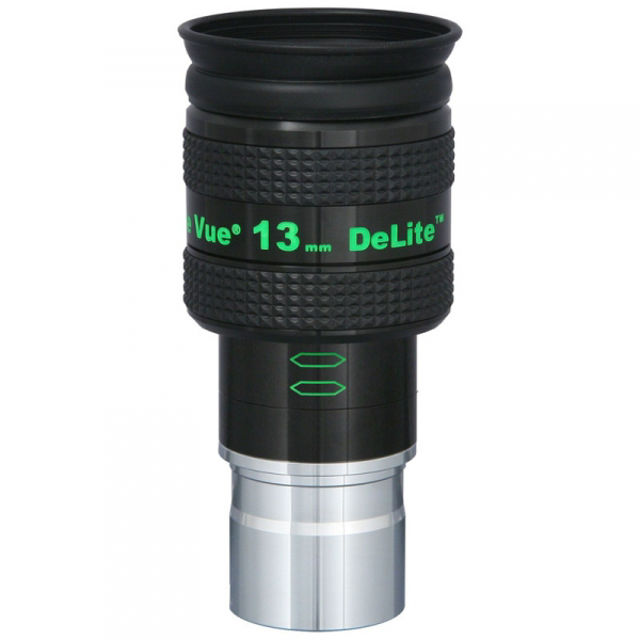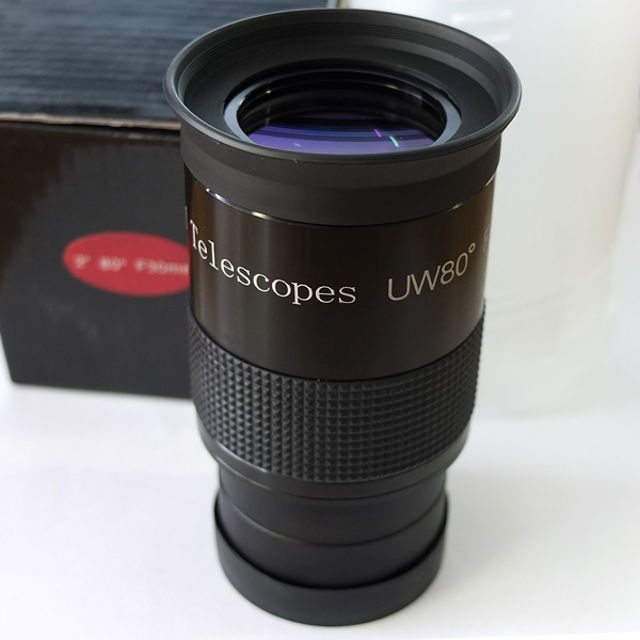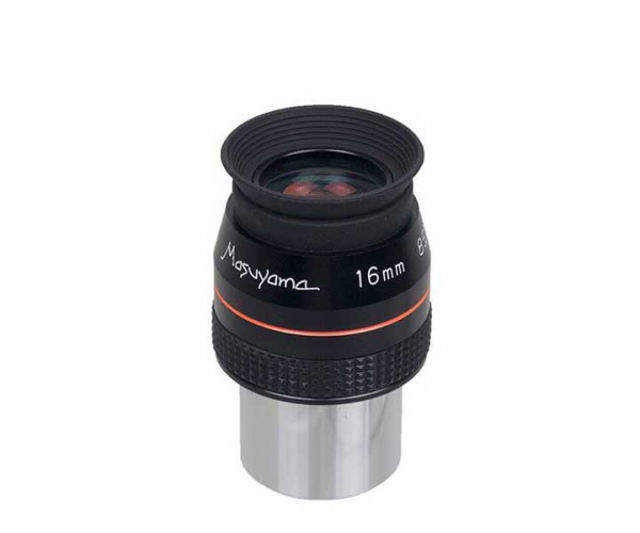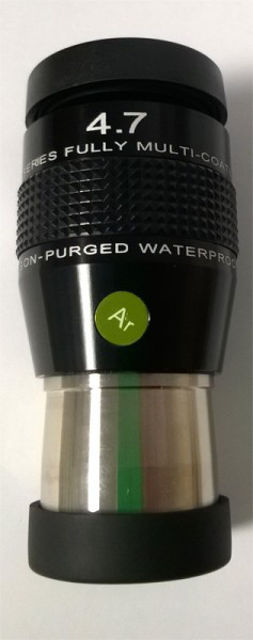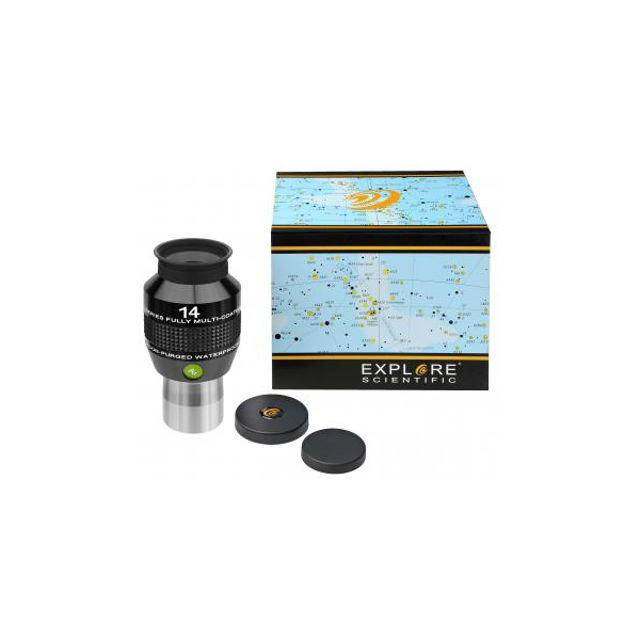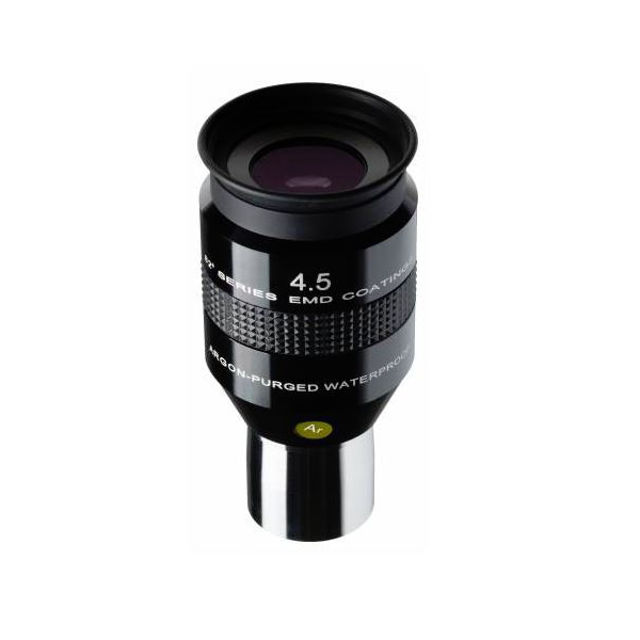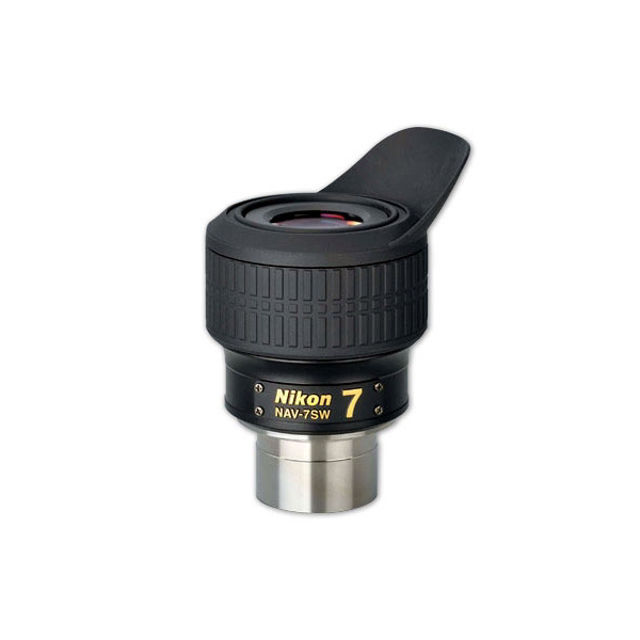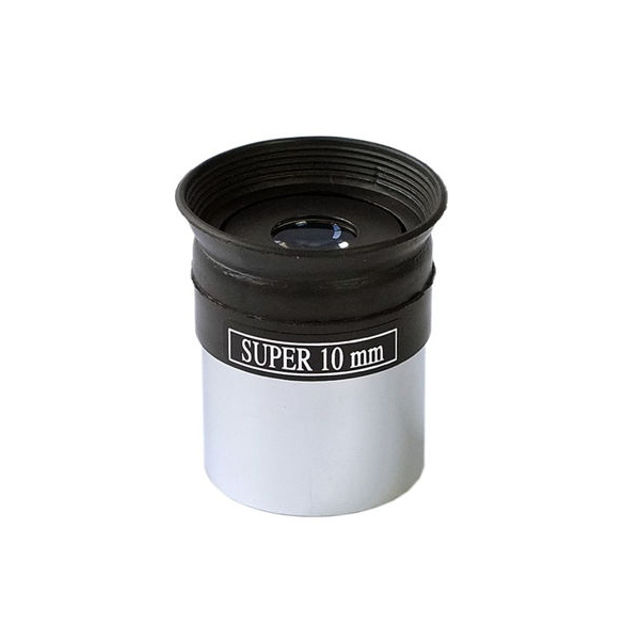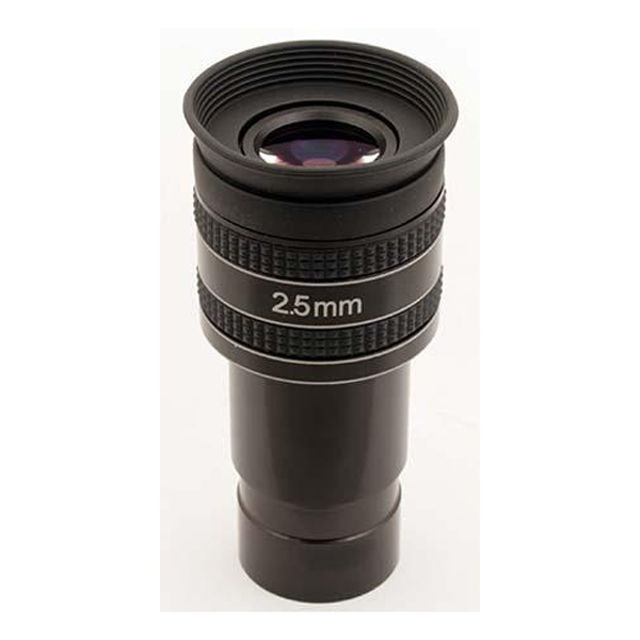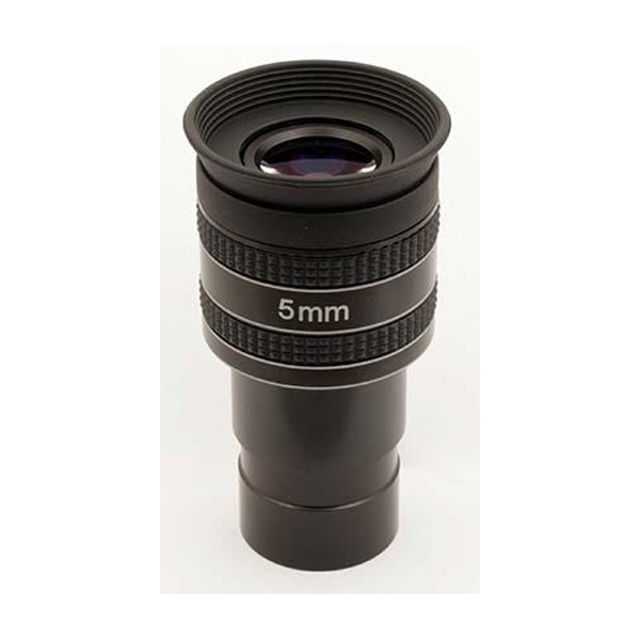Secondhand & Stock
- Home /
- Secondhand & Stock
Secondhand & Stock
APM Ultra Flat Field 18mm Telescope eyepiece , 65 degree FOV, 1.25", 20 mm eye relief
Item condition: new and original packed
Item condition: new and original packed
119.00 €
Estimated delivery time : 1-4 days
TeleVue Okular DeLite 13mm 1,25"
Item condition: new and original packed
Item condition: new and original packed
395.00 €
Estimated delivery time : 1-4 days
APM Eyepiece UW 30mm 80°
Item condition: new and original packed
Item condition: new and original packed
139.00 €
Estimated delivery time : 1-4 days
Masuyama eyepieces are known for their clear and high contrast imaging and velvet black background. The good contrast of these high-end eyepieces is achieved by better grinding and internal baffles combined with the best possible internal blackening. Due to the elaborate lens design, the eyepieces get by with only 5 elements, with good correction at the same time. Despite the large field of view, the short focal length Masuyama eyepieces are fully recommended for planetary observation. At the same time, the eyepieces are of course very nice overview eyepieces for deep-sky observation. The long focal length eyepieces are well suited for finding and observing large area deep sky objects. The eyepieces were developed by renowned optician Dr. Masuyama. Among other things, Dr. Masuyama designed an eyepiece with a focal length of 100 mm, which was used on the historic 60-inch telescope at Mount Wilson Observatory in California. We are pleased to offer you these legendary eyepieces with the latest glass and coating technology. Scope of Delivery: Eyepiece Dust Caps
Item condition: new, but not original packed
Item condition: new, but not original packed
329.00 €
Estimated delivery time : 1-4 days
Explore Scientific 82° Series™ extreme wide field eyepieces are optimized to produce high contrast, high resolution, and superior flat field characteristics. The visual effect of these eyepieces with their long eye-relief and their 82° apparent field is truly a full-immersion experience. Your eye is relaxed, allowing you to easily use the "averted vision" technique to study faint details across a huge field-of-view. The 82° Series eyepieces come with a twist-up rubber eye-guard that raise to the desired height for the comfort of the observer, and as experienced astronomers know, eye comfort is critical when trying to observe at the visual limits of the telescope. To keep internal reflections to a minimum, all internal surfaces of the eyepiece barrel are flat black, as well as the edges of the lenses themselves to minimize the scattering of light within the lenses themselves. All 82° Series eyepieces are fully multi-coated and edge-blackened to produce maximum contrast.
Item condition: new and original packed
Item condition: new and original packed
165.00 €
Estimated delivery time : 1-4 days
EXPLORE SCIENTIFIC 82° Ar Okular 14mm (1,25")
Item condition: new and original packed
Item condition: new and original packed
185.00 €
Estimated delivery time : 1-4 days
EXPLORE SCIENTIFIC 82° LER Eyepiece 4,5mm Ar
Item condition: new and original packed
Item condition: new and original packed
189.00 €
Estimated delivery time : 1-4 days
Nikon NAV SW 7mm Okular
Item condition: new and original packed
Item condition: new and original packed
495.00 €
Estimated delivery time : 1-4 days
Hyperion® / Morpheus eyepiece case; Eyepiece case with pre-punched compartments for up to eight eyepieces Suitable for Morpheus and Hyperion eyepieces Delivery WITHOUT eyepieces Size: 47.5 x 33.5 x 13.5 cm
Item condition: new and original packed
Item condition: new and original packed
79.00 €
Estimated delivery time : 2-3 days
Product description Skywatcher Super-MA 10 mm eyepiece with 1,25" barrel The modified achromat series of eyepieces offer a good standard of performance in a very affordable package. Designed for telescopes with mid-range to large f/ratio, these oculars have features usually found only in more expensive designs. These eyepieces incorporate a fold-down rubber eye-shield, fully coated optics and outstanding field correction. Delivery contents Eyepiece
Item condition: new and original packed
Item condition: new and original packed
20.00 €
Estimated delivery time : 2-3 days
TS Optics 6 mm Planetary HR - 1.25" Eyepiece, 58°, fully multi-coated
Item condition: new and original packed
Item condition: new and original packed
69.00 €
Estimated delivery time : 1-4 days
HR - 5 mm Planetary eyepiece High Resolution, Long Eye Relief, Wide Angle Planetary Eyepieces
Item condition: new and original packed
Item condition: new and original packed
69.00 €
Estimated delivery time : 1-4 days


